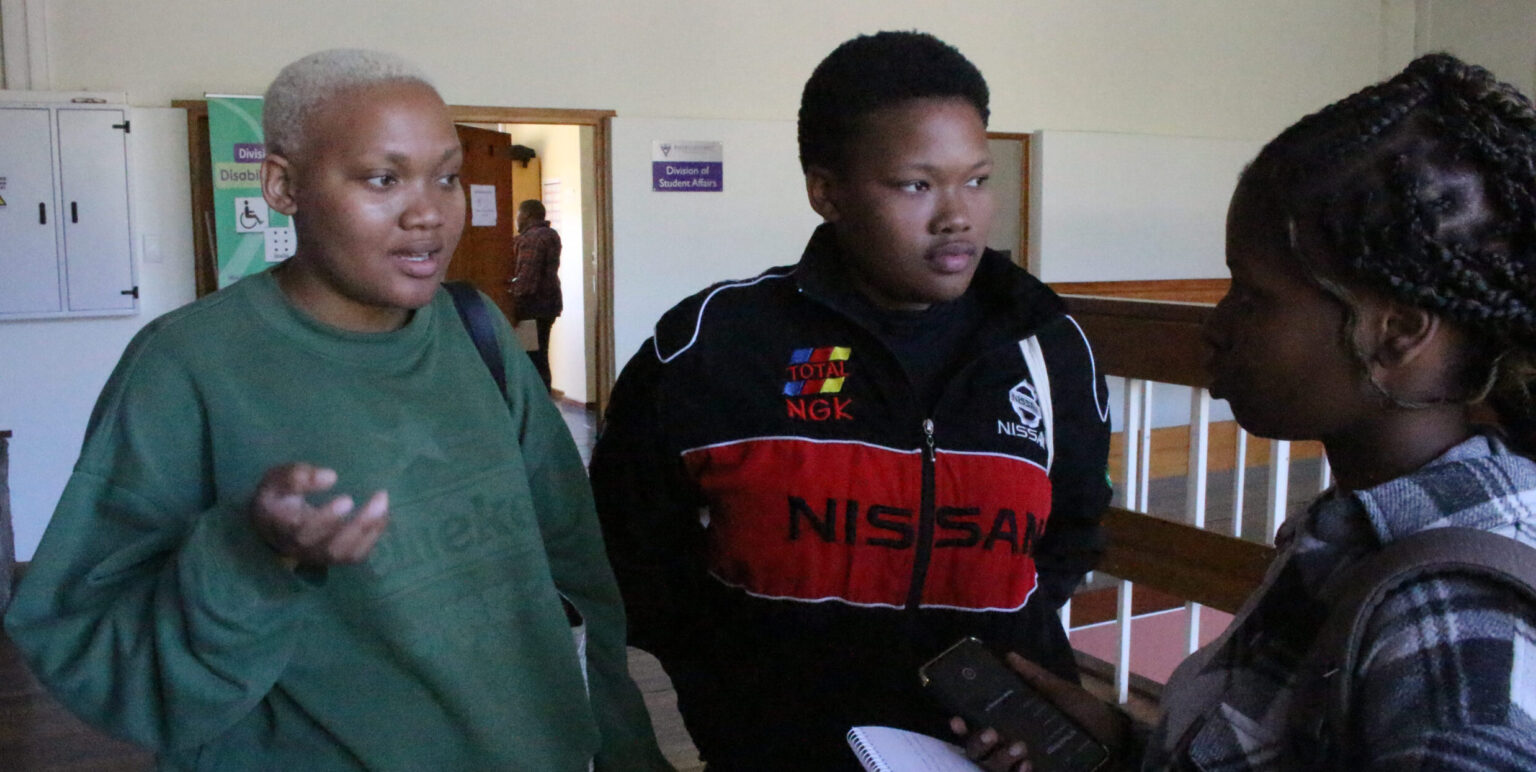By Ruvesen Naidoo and ‘Odidi Matai-Sigudla
On 8 May, hundreds of students gathered in support of the Student Representative Council (SRC) of Rhodes University for a peaceful protest about water outages. The shutdown was “adjourned” on 9 May, with students having mixed emotions about the result.
Nkhaviso Mathebula, Thandeka Nzama, and Nokukhanya Zulu, who are all studying towards a Bachelor of Pharmacy at Rhodes University, felt that the protest was something that needed to happen as the students had been complaining about water cuts and a lack of proper maintenance on campus without being listened to.
They said a Students’ Representative Council (SRC) representative had told protestors that agreement had been reached with the university that broken equipment would be fixed on campus as soon as possible. The students said they believed this was true as they saw a person fix an airconditioner at the Steve Biko Hall, and heard that heaters were getting repaired in upper campus residences.
However, Tanatswa Chagonda and Nothando Mutungwe, who had not attended the strike, thought otherwise. “For me to say that something changed is to see a change, an actual change,” said Mutungwe. “And not only to hear ‘we came to an agreement’,” Chagonda added.
“Is there any outcome? I don’t have anything to say because I don’t see any outcome,” said Sinovuyo Loteni, a Bachelor of Arts student. Her sister, Sinoxolo Loteni, studying for the same degree, added that “There are other urgent matters like unfunded students and students who have huge debts at school, and they did not protest for them. They did not fight for those students when they wanted to come back and register. I feel like there are more important matters than what they were protesting for, way more important.” Even though they were not part of the protest, they both said they were still affected by it negatively because lectures were cancelled for two days.
On the other hand, Minenhle Msane, another Bachelor of Pharmacy student, said the shutdown allowed him to catch up on his academic work because two of his tests were postponed. While Msane was unaware of what the shutdown stood for, he said he understood the issues and felt that they were beyond the university’s control, given that load shedding is happening across South Africa.
The SRC Sectary General and Treasurer of Rhodes University, Varshan Pillay, said the reason for the shutdown was not only to express the SRC’s displeasure with the water cuts and the university’s lack of maintenance of infrastructure, but also to show what the SRC is trying to do in response.
“We (the SRC) are trying to get as many things open during load shedding (for exams), and also when it comes to the water problem, it’s not necessarily a Rhodes University issue only, it’s Makhanda as a whole, so it’s quite difficult to find solutions to that. But what we’ve done is put emphasis on the university filling up the JoJo tanks more often, so that the toilets remain operational,” says Pillay.
Regarding the SRC’s relationship with Vice-Chancellor (VC) Sizwe Mabizela, Pillay says that it is natural when protests occur for there to be a divide, and generally, relationships do get tricky. He, however, adds that since the protest is over, the SRC and the VC are in a working relationship. The SRC has been seated with VC during community meetings, and it is a very ‘conducive environment.’
Overall, most students interviewed felt that their voices were not being heard. The water shortage is ongoing and is not a recent development. The protests affected the students’ academic work, students said. Tests were postponed, and preparation for lectures and the upcoming exams was difficult to do as many of the study facilities on campus, including labs and libraries, were closed.


